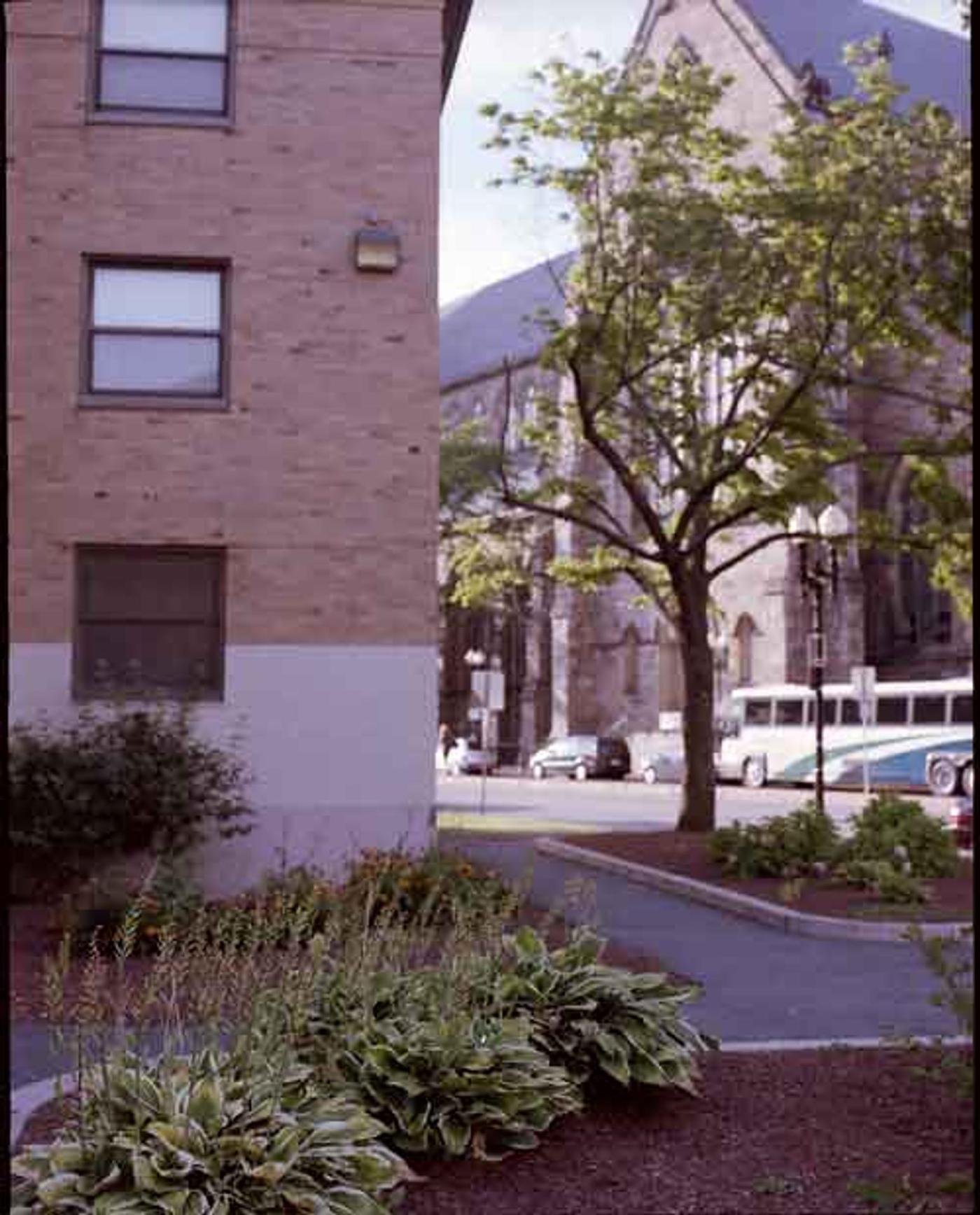
Broken elevators in Boston public housing complex leave residents stranded : ‘I have to stay in the house all day’
A lack of working elevators in Boston’s public housing buildings is causing many residents — particularly those who are older, wheelchair-bound or dealing with other physical disabilities — to become prisoners of their own homes.
Sheila Thompson, 64, lives on the seventh floor at 14 East Brookline, one of several multi-story buildings that encompass Boston Housing Authority’s Ruth Barkley Apartments complex, where elevators are frequently down.
After the elevator in her building unexpectedly went down recently, Thompson found herself unable to make it up the stairs to get to her apartment on her own. One of the other residents was stuck inside the elevator for 20-30 minutes, Thompson said, and she was among the tenants waiting around for it to be fixed.
An electrician and the fire department responded, and had to break the door to get the trapped older woman out, which left some tenants like Thompson, who were awaiting access to their upper-floor apartments, in a pickle, she said.
“They couldn’t fix it, so someone helped me upstairs,” Thompson told the Herald Friday. “I’m on the seventh floor and I was in pain for two days. My back, I’m still sore.”
Thompson said the elevators are down so often that, many times, she won’t bother to leave her home, because of the difficulty she has with going up the stairs. The situation has impacted her quality of life and mental health, she added.
“I have to stay in the house all day,” she said. “I don’t get to see my friends. They call me on the phone to see if I’m all right, but it’s not like seeing them in person.”
Dawn Oates, a disability advocate who works with BHA residents experiencing accessibility issues, said Thompson’s experience at Ruth Barkley is not unique.
A longtime resident at a different Ruth Barkley building, 10 East Brookline, was forced to sleep in the hallway the last time the elevator went down. The man, the tenant coordinator for the whole complex, is “super overweight” with a lot of health issues and uses a power wheelchair, Oates said.
Another Ruth Barkley tenant at 19 Monsignor Reynolds Way, a woman with arthritis and bronchitis, reported being unable to walk up the stairs when the elevator there went down about a year ago, Oates said.
“There are people who are trapped on these high floors who can’t go out of the building,” Oates said, adding of BHA, “There’s a long history of excuses.”
While the elevators have been a problem for many years, Oates said she got involved a year ago and “blew” it up. She cited several factors that exacerbate the issue, such as older infrastructure that makes it difficult to find matching parts for repairs, and payment issues with BHA, which disincentivizes contractors from working with them, or prioritizing their buildings for faster repairs.
Oates said she is encouraging residents at Ruth Barkley to speak up and share their stories, saying a similar campaign to get a new elevator at 19 Monsignor Reynolds Way was implemented to some success about a year ago.
A second hearing on the issue is set to be held Monday, via the Massachusetts Division of Occupational Licensure Office of Public Safety and Inspections Architectural Access Board.
While the agenda states the hearing will focus on the Ruth Barkley complex’s main 16-story Cathedral Development, at 42 Harrison Archway, where both elevators were recently down, one of which was broken for months, Oates and Thompson plan to press the issue, and push for action at other buildings, during the meeting.
The Boston City Council also plans to take a look at the issue. Ed Flynn, whose Council district includes the South End, where Ruth Barkley is located, introduced a hearing order on the matter last week.
Flynn’s hearing order states that elevator breakdowns are a “frequent occurrence” at the Ruth Barkley, while “issues of elevator breakdowns have taken place at both Torre Unidad at West Dedham Street and St. Botolph BHA.”
“There are increasing concerns that these conditions violate federal and state laws, including the Americans with Disabilities Act,” Flynn wrote.
Seniors and tenants with disabilities are sometimes unable to leave their homes for up to two weeks, Flynn wrote, making it difficult to get their basic needs met, such as buying groceries or keeping medical appointments.
“It is critical for the BHA to have a financial and maintenance plan to address our aging elevator systems across BHA developments,” Flynn said in a statement. “This is a public safety and quality of life issue.”
Boston Housing Authority spokesman Brian Jordan said the “maintenance and repairs of our elevators is an important priority” for BHA, and that it is “using every resource at our disposal to ensure that all 101 of its elevators” provide reliable service to residents, but noted that its federal capital dollars are limited.
Related Articles
BPS has no-show buses, delays as Boston students return to school amid talk of transportation, safety and teacher’s contract
Michelle Wu, BPS superintendent join door-knocking push to keep chronic absenteeism down ahead of first day of classes
Boston City Councilor Erin Murphy laments loss of $190K Suffolk SJC clerk bid to Allison Cartwright
In hot Boston race, Allison Cartwright declares victory over Erin Murphy for Suffolk SJC clerk
Boston stands to gain 225 new liquor licenses after House, Senate reach deal
Jordan said a “number of active elevator repair and elevator capital projects are underway,” thanks in part to the $4 million the mayor and City Council added to this fiscal year’s capital plan, and a $1 million earmark included in the state’s housing bond bill, passed in July, for elevators at Ruth Barkley.
At Ruth Barkley, Jordan said, the BHA has “taken a number of steps in recent months to address elevator-related complaints, including ordering replacement parts, scheduling elevator upgrades, and updating our elevator contract management protocols,”
“Since elevator projects can sometimes take an extended period to complete, we also have a protocol for offering hotel stays or unit transfers to affected residents, and for providing assistance with daily tasks in the event of an outage,” he said in a statement.
“We share the concerns of advocates, elected officials, and residents about how important it is for BHA’s elevators to operate reliably,” Jordan added. “BHA intends to continue to partner with the Architectural Access Board and the City of Boston’s Disabilities Commission to prioritize this issue.”

